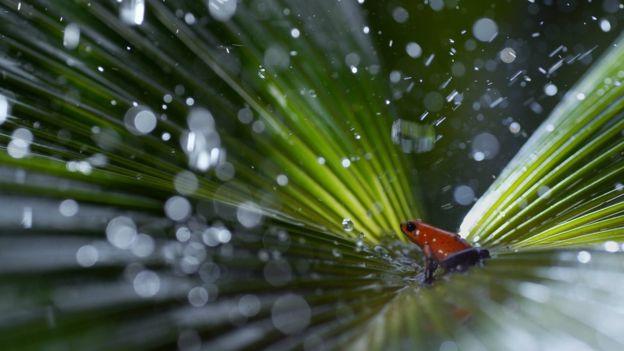Planet Earth 2 trailer sees 4K HDR video arrive on iPlayer
The trailer will feature footage of a frog that is a shade of red never before seen on TV

Your support helps us to tell the story
From reproductive rights to climate change to Big Tech, The Independent is on the ground when the story is developing. Whether it's investigating the financials of Elon Musk's pro-Trump PAC or producing our latest documentary, 'The A Word', which shines a light on the American women fighting for reproductive rights, we know how important it is to parse out the facts from the messaging.
At such a critical moment in US history, we need reporters on the ground. Your donation allows us to keep sending journalists to speak to both sides of the story.
The Independent is trusted by Americans across the entire political spectrum. And unlike many other quality news outlets, we choose not to lock Americans out of our reporting and analysis with paywalls. We believe quality journalism should be available to everyone, paid for by those who can afford it.
Your support makes all the difference.The BBC is going to tease the future of TV with a short clip of Planet Earth II – including colours never before seen on television.
iPlayer will be showing a short trailer demonstrating ultra-high definition (UHD) footage to people have the 4K TVs needed to use the service.
The four-minute clip is being used as a way of testing the technology needed to stream higher quality content over iPlayer. It will also be used to test viewer reaction to the vastly-improved video.
The footage, which includes a jaguar stalking prey and rainfall in the jungle, also uses a technology called Hybrid Log-Gamma (HLG), that provides better quality pixels in images, improving the range of colours that can be seen on-screen.
As a result the clip contains footage of a frog in a shade of red the BBC says has never been seen before on TV, and will be available to view from Wednesday until "early next year".
The head of BBC iPlayer, Dan Taylor-Watt, said the test was important in planning for the platform's future.
"The extra quality HLG brings to Ultra HD needs to be seen to be believed. It's still early days for the technology but this experiment puts us in the best possible position once audience demand is there," he said.
"This year we've brought live events like the Euros and Olympics to iPlayer, introduced new personalised features and now we're giving people a glimpse of what the future may hold."
Other streaming services, including Netflix and Amazon, have already begun to offer some programs in Ultra HD to those with compatible devices.
Phil Layton, head of broadcast and connected systems at the BBC's research and development department, said: "Increasing the dynamic range of TV images makes a huge difference to how real the images appear to viewers - it's closer to looking through a window than watching a standard TV set.
"Crucially, HLG works with existing TV technology and workflows making it ideal for broadcasters, and audiences, all over the world."
Additional reporting by Press Association
Join our commenting forum
Join thought-provoking conversations, follow other Independent readers and see their replies
Comments